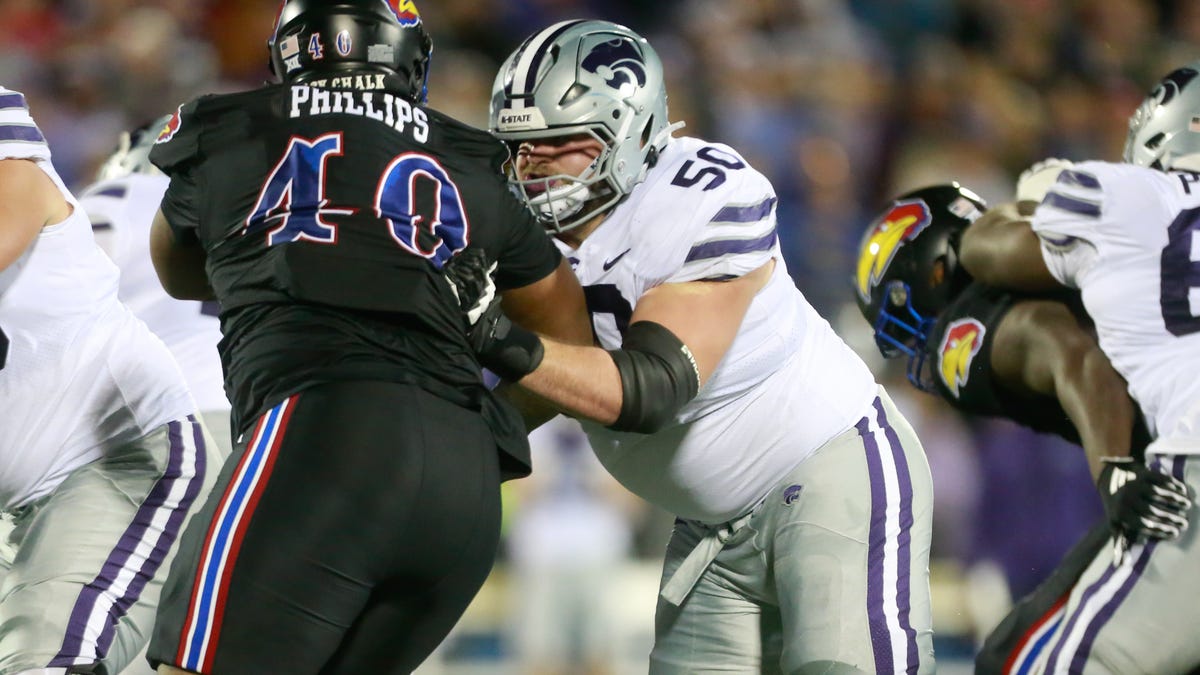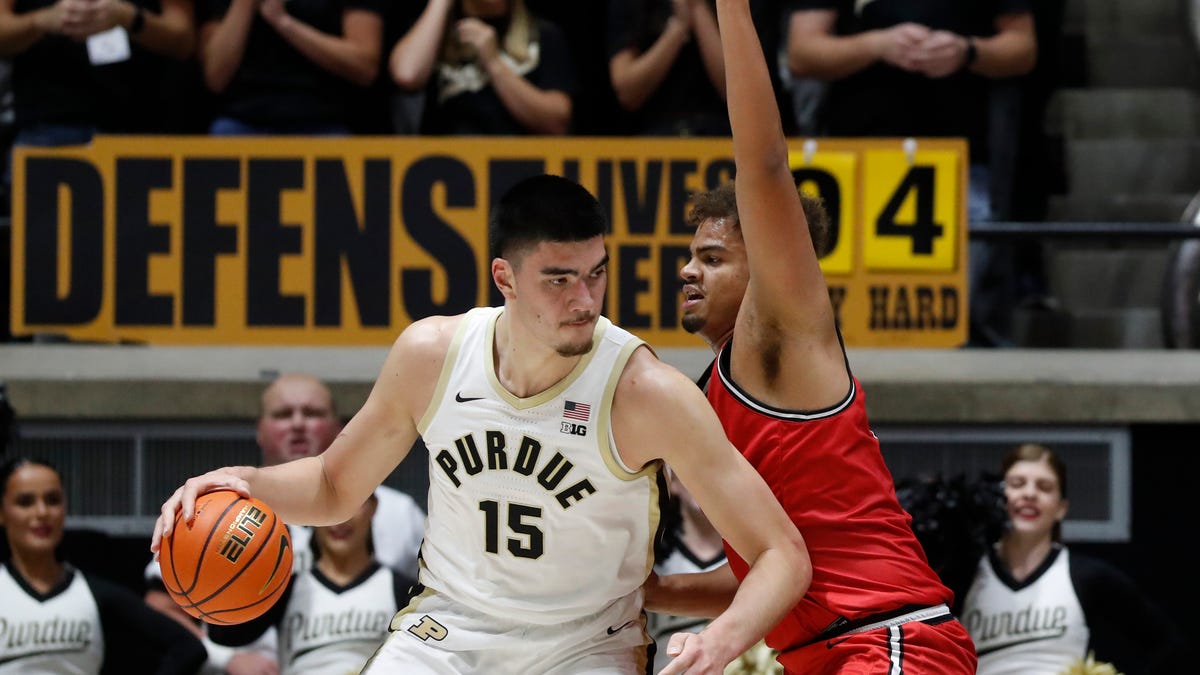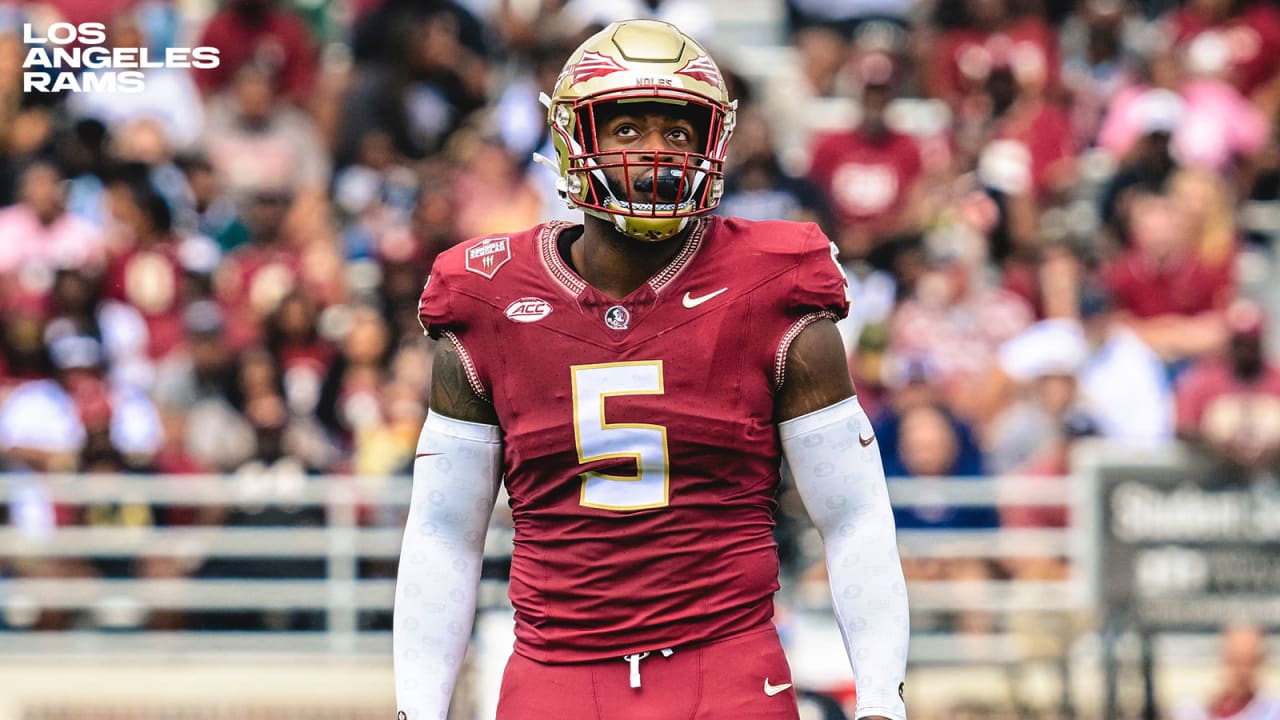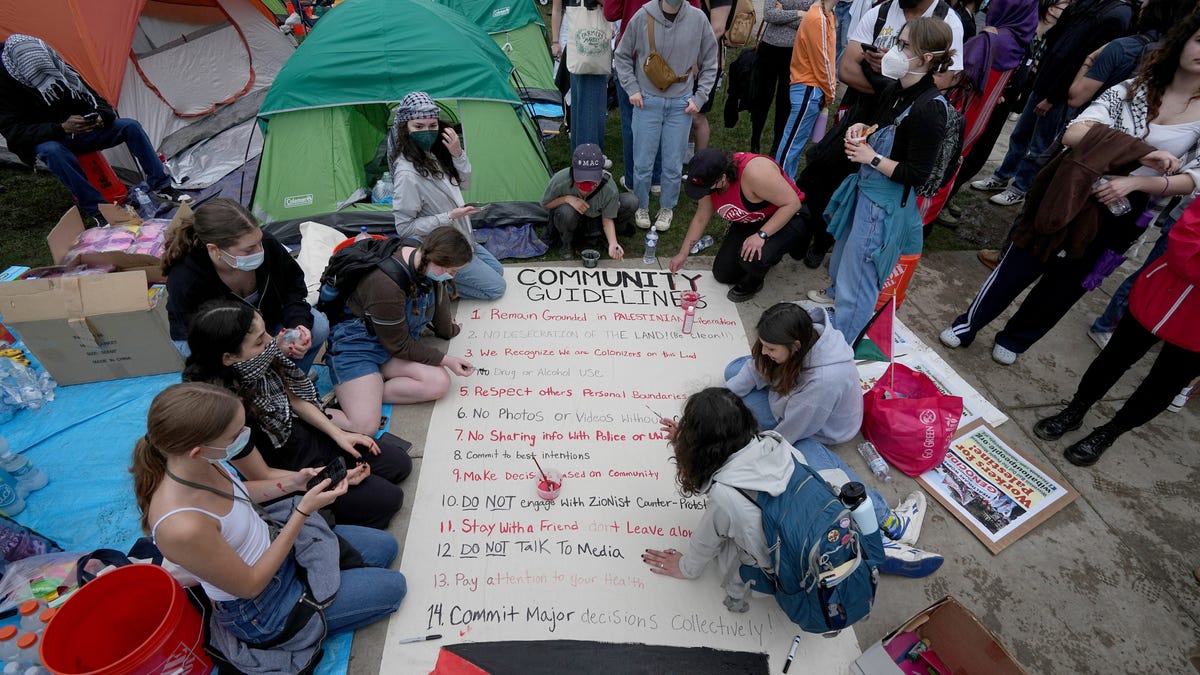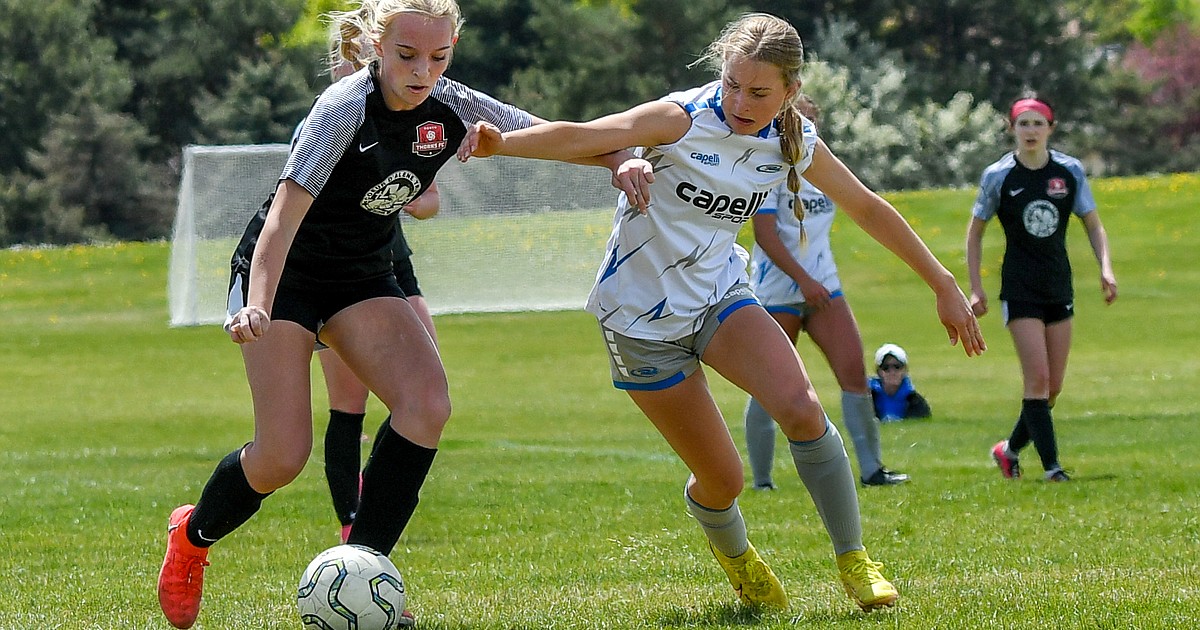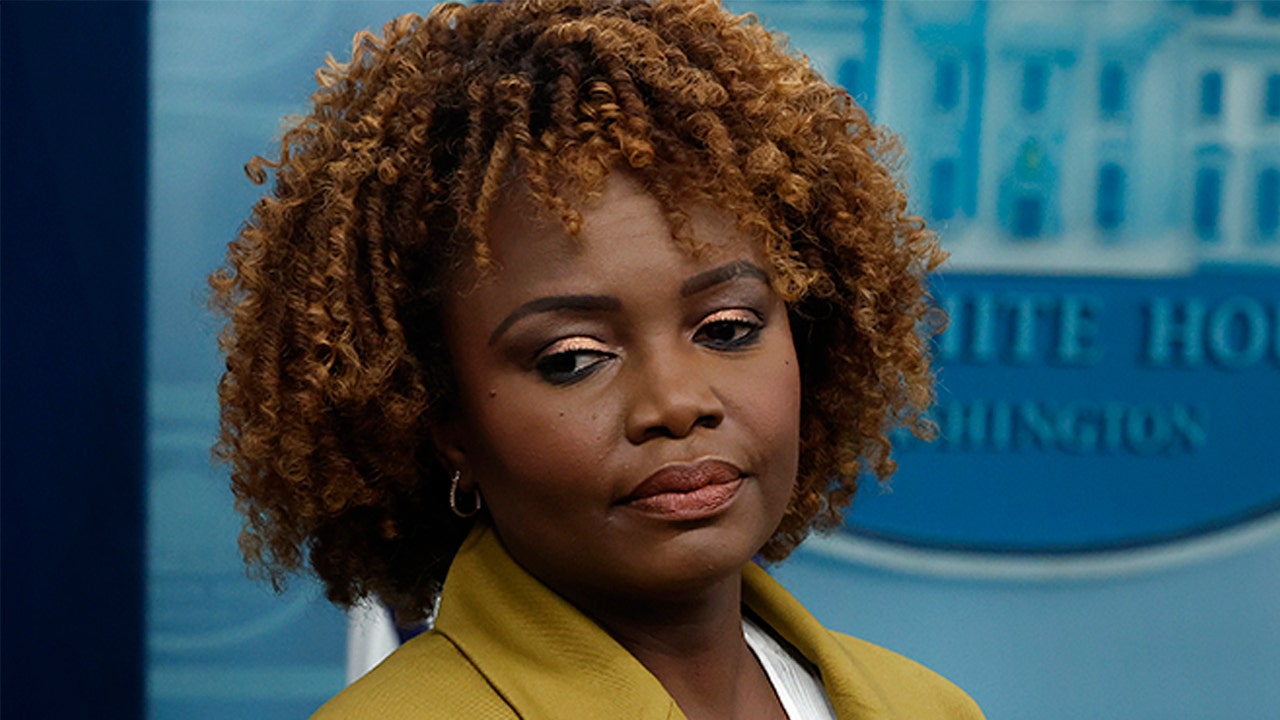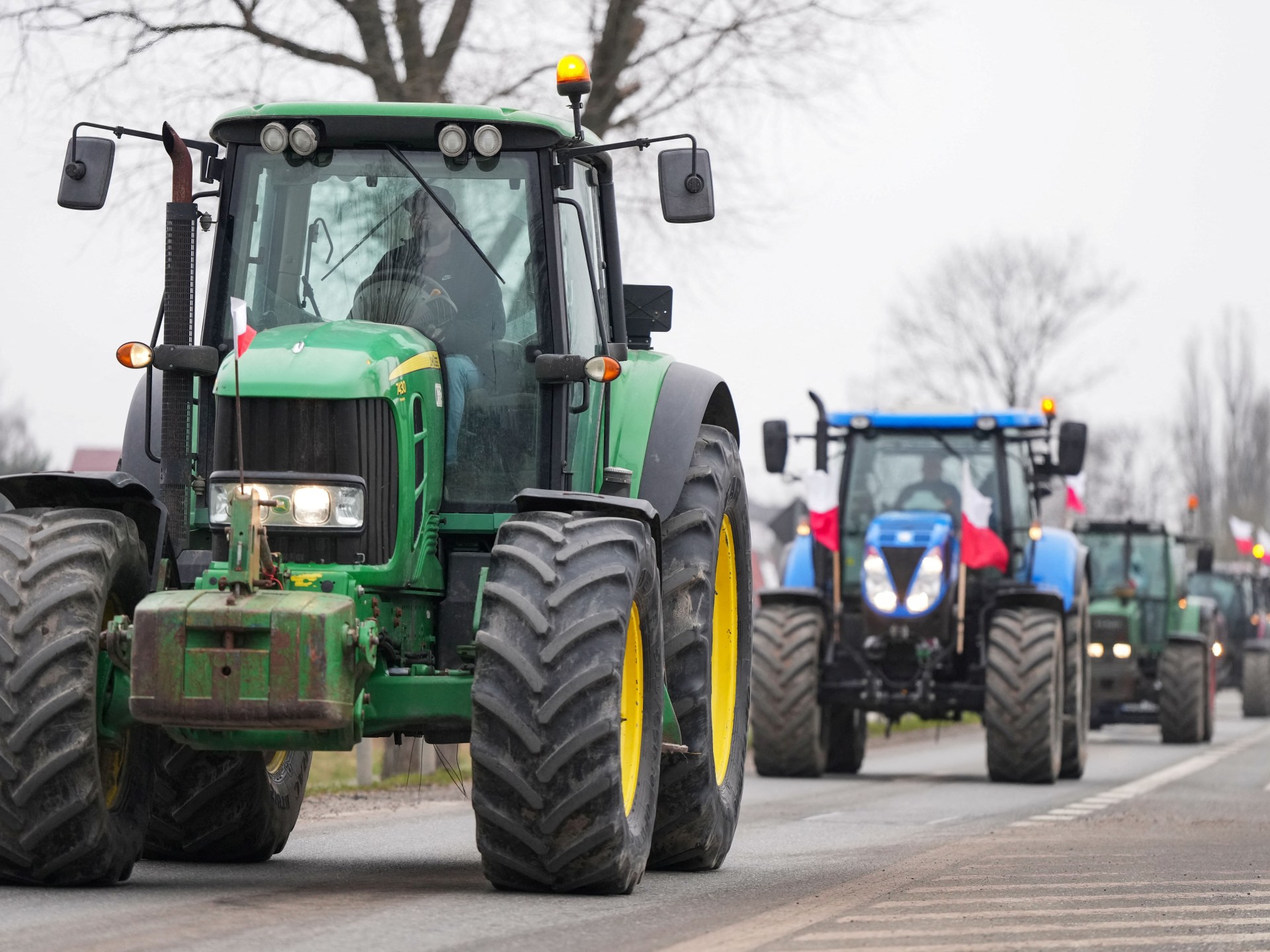Across the U.S., college students are building “Gaza Solidarity Encampments” to demonstrate support for Palestinians. But as tensions rise, many students have wondered what rights they have to demonstrate on the campuses where they live and pay tuition.
The Pro-Palestinian rallies gained traction earlier this month when student organizers at Columbia University established an encampment on the main lawn. On Monday, University of Wisconsin students in Milwaukee and Madison joined the movement, calling on the university system to divest from companies that support weapons manufacturing and Israel.
The Journal Sentinel spoke to American Civil Liberties Union of Wisconsin staff attorney R. Timothy Muth for insights on the rights of student protesters. Here’s what you need to know:
What are the protection differences between an encampment and a regular protest or march?
When protesters set up an encampment, they often set up tents and sleeping quarters near or within the organization they are protesting.
According to Wisconsin law, no person may picnic or camp on university lands, except in areas specifically designated as picnic or camping grounds. These rules include pitching tents or overnight use of sleeping bags, blankets, makeshift shelters, motor homes, campers or camp trailers on university property.
Additionally, according to Wisconsin law, universities and other government organizations are allowed to place “reasonable time, place and manner restrictions” on speech or protest activity. This means that they can regulate when, where, and how expression takes place, as long as their restrictions are content-neutral, narrowly tailored and provide sufficient alternatives to express ideas.
How do protest rules differ on a public vs. private campus?
The rules and regulations for protest at a public university need to comply with the First Amendment, Muth said, meaning that individuals have the right to assemble and express their views.
However, according to Wisconsin law, private property owners can set rules for speech on their property. A private university could enact a wide variety of restrictions, some of which could be perceived as unreasonable by protesters, because they are granted more flexibility to prohibit some speech and the locations where protesters are permitted to demonstrate.
If a police officer asks for the name of a protester, but is not placing them under arrest, does the protester have to respond?
According to Muth, a person is not required to answer any questions of law enforcement since they have rights under the Fifth Amendment to not speak. If a person is being arrested, they have the right to state that they do not want to answer questions without an attorney present.
However, Muth recommends that student protesters confirm whether or not their campuses have established rules which require them to identify themselves to campus security, as some private institutions might have a rule in place to maximize student safety.
In most cases, like at UW-Madison, campus policies do not supersede state law and protesters have a right to not respond to law enforcement.
Are there rules that govern the behavior of opposing groups at a protest?
Police are permitted to keep antagonistic groups separated, but, according to state law, the groups should be allowed to be within sight and sound of one another. Protesters of opposing groups are allowed to speak to and shout at one another during rallies and demonstrations. According to Muth, a protester cannot be arrested for exhibiting those behaviors.
At a protest, Muth said, “the police are responsible for protecting each group and their expression.”
What types of speech are not protected?
Though almost all speech is protected at a protest, there is an exception for so-called “fighting words” that have the potential to cause harm to an individual or group.
This type of speech is an incendiary, obscene or defamatory statement that aims to incite violent action. This speech is directed at a specific individual or group that create an imminent threat or incite violence.
Protesters should avoid using this language, as it could lead to arrest or removal from the protest premises.
What rules should people be aware of when capturing video recording or photos at a protest?
Generally, the courts state that if a person is in a public space, they do not have any particular expectation of privacy. Therefore, individuals can be photographed or surveilled while walking down a public street, protesting, or partaking in any activities within a public area.
Campus security, the police, and counter-demonstrators are legally allowed to take photos of protesters, according to Muth.
Additionally, he said, “If the police are arresting people or using force, protesters have the First Amendment right to to record and photograph. We generally encourage people not to photograph identifiable pictures of protesters who have not agreed to be photographed.”
Do police officers have the right to view photos and videos captured at an event?
Muth said protesters who want to guarantee that their photos and videos are not accessible to law enforcement should establish a lock or password on their phone before attending a protest.
“Under the Fourth Amendment, it is prohibited for the police to search your phone without a warrant, but that doesn’t mean they won’t look through an unlocked phone,” Muth said.
If protesters are concerned about privacy, Muth said that it is important to evaluate their personal approach to digital security. In addition to locking phones, anything that protesters post publicly to social media can be evaluated by law enforcement following a protest and used as evidence.
Are there any restrictions when it comes to carrying weapons while at a protest?
Wisconsin law allows for the carrying of firearms in a wide variety of settings. However, according to the Wisconsin Administrative Code UWS 18.10(3), individuals are prohibited from “carrying, possessing, or using any dangerous weapon on university lands or in university buildings or facilities, unless it is for law enforcement purposes or the person receives written approval of the chief administrative officer.”
This rule applies to all lands controlled by the Board of Regents of the University of Wisconsin System. At private institutions like Marquette University, many schools prohibit the possession of weapons in campus buildings, offices and residence halls.
What other safety precautions should student protesters should keep in mind?
If protesters think there is a possibility of them getting arrested, Muth said they should memorize a phone number for somebody who can pick them up from the police station or contact a lawyer on their behalf.
If protesters believe their rights have been violated, the ACLU recommends they complete the following steps:
- Write down everything they can remember, including officers’ badge and patrol car numbers and the agency they work for
- Get contact information for witnesses
- Take photographs of all injuries
- File a written complaint with the agency’s internal affairs division or civilian compliant board
Tamia Fowlkes is a Public Investigator reporter for the Milwaukee Journal Sentinel. Contact her at tfowlkes@gannett.com.


